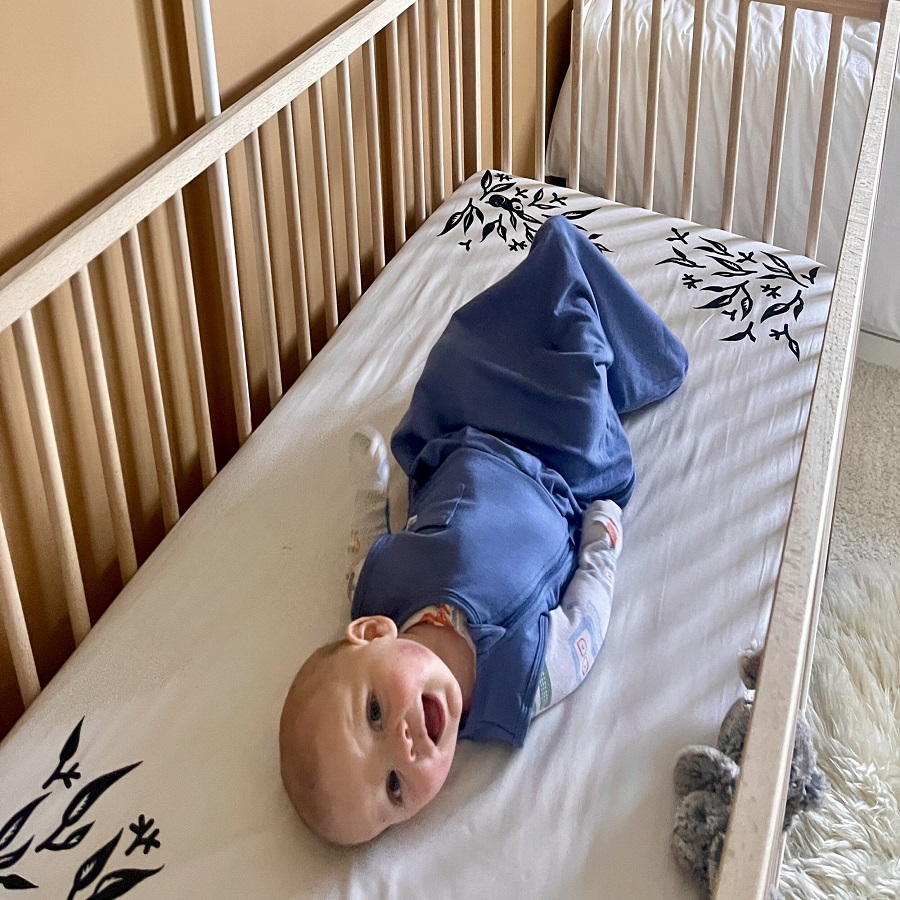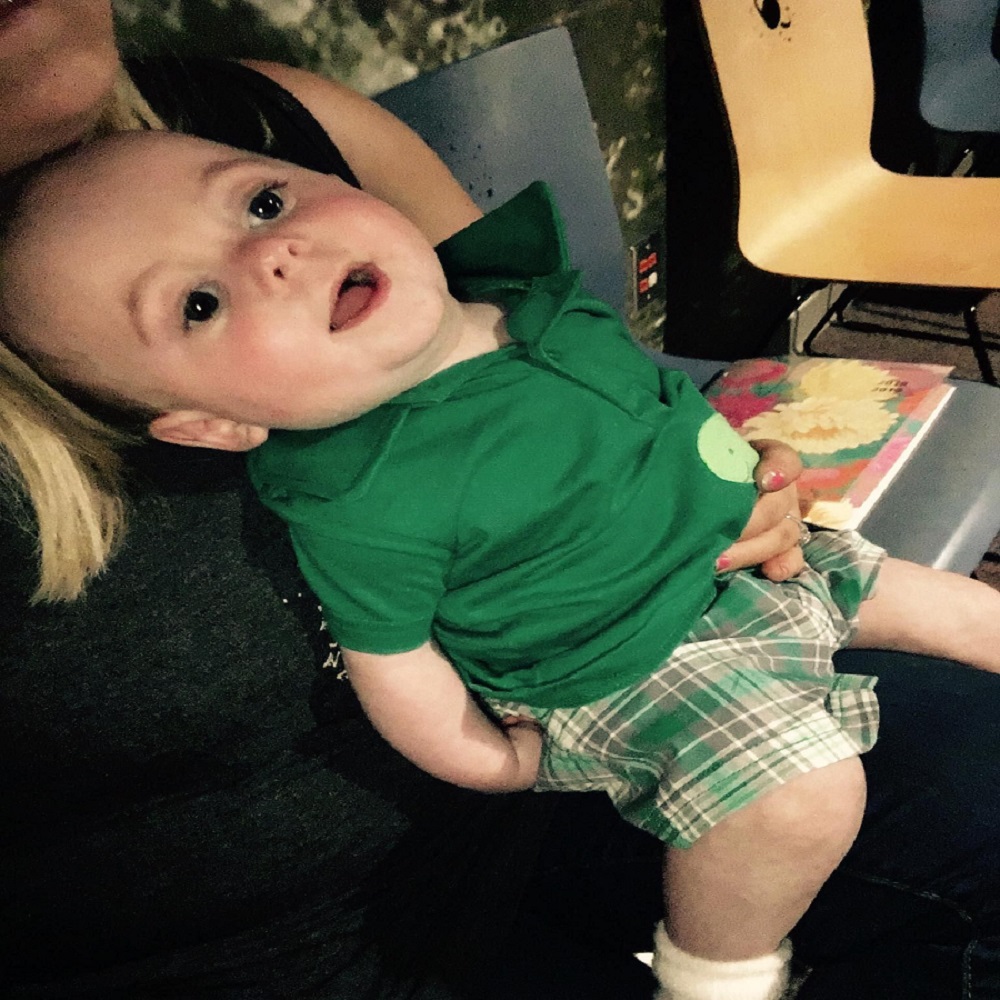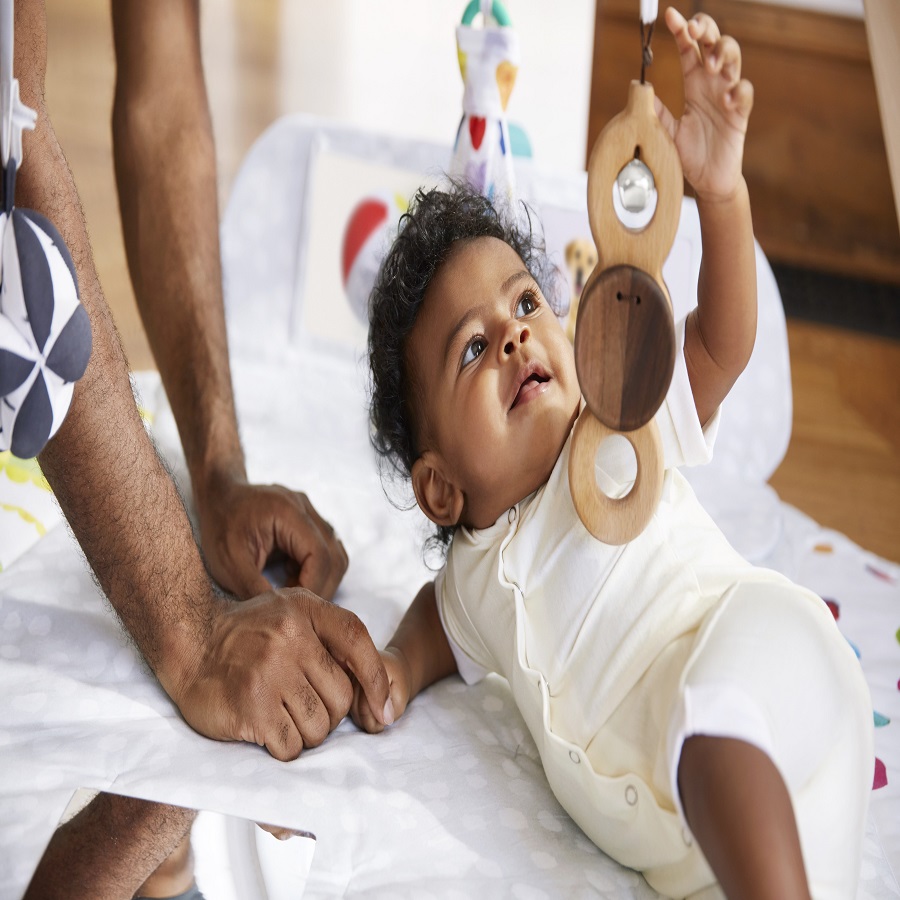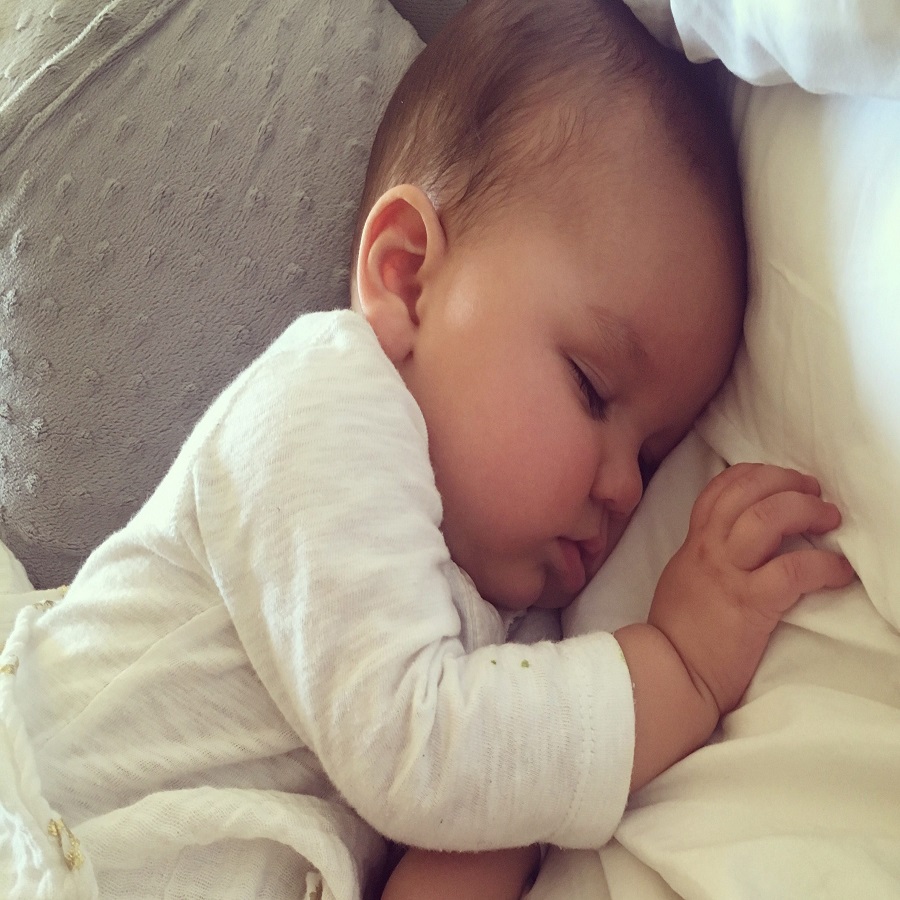Initial Response to a Baby Falling Off Bed
One of the most distressing moments for any parent is when their 6-month-old falls off the bed. Babies can be quite mobile and may roll or scoot, leading to such accidents. Here’s a step-by-step guide to help you respond swiftly and effectively:
- Stay Calm: It’s natural to panic, but staying calm is crucial for both you and your baby.
- Check for Responsiveness: Gently touch and speak to your baby to see if they respond to your voice and touch.
- Do Not Move the Baby Rashly: If you suspect a serious injury, particularly to the head or spine, avoid moving them significantly. Only move your baby if they are in danger of further injury.
- Observe for Signs of Pain: Notice if your baby is crying, which could indicate distress or pain.
- Look for Visible Injuries: Check for any obvious signs of injury like cuts, bruises, or bumps on the body, especially the head.
- Comfort Your Child: If there are no signs of serious injury, it’s okay to pick your baby up and soothe them.
- Monitor Closely: Keep a vigilant eye on your baby for the next few hours for any changes in behavior or symptoms.
Take swift action if your baby exhibits any worrisome symptoms, such as a loss of consciousness or abnormal breathing. In such cases, it’s crucial to seek immediate medical attention. Remember, quick and correct response can significantly impact the outcome of such accidents.

Assessing for Potential Injuries
After ensuring the immediate safety of your 6-month-old following a fall, the next crucial step is to assess for potential injuries. This post-fall evaluation should be thorough and cautious to identify any issues needing medical attention.
Visual Inspection
Begin with a visual check for signs of injury:
- Look for Bruises or Bumps: Examine the baby’s head and body for any visible marks.
- Check for Cuts: Small lacerations may occur, and it’s essential to spot them early.
- Inspect Limbs: Gently assess each limb for possible fractures or strains.
Physical Signs
Your baby’s behavior can signal potential injuries:
- Crying: Persistent or intense crying might indicate pain.
- Refusal to Move: Avoidance of using a limb could suggest discomfort.
- Change in Consciousness: If your baby seems unusually drowsy or hyper-alert, take note.
Comfort Measures
Keep your baby as comfortable as possible:
- Provide a Soft Touch: Offer cuddles to soothe any anxiety or discomfort.
- Stay Close: Maintain physical proximity for reassurance and to observe any subtle changes.
Ongoing Monitoring
Be vigilant in the hours following the incident:
- Watch for Changes: Keep an eye out for any new or worsening symptoms.
- Take Notes: Document any symptoms or behaviors that concern you, to share with a healthcare provider if needed.
If at any point you notice alarming signs or if your intuition suggests something isn’t right, don’t hesitate to seek professional medical advice. A timely response is pivotal in handling potential injuries from a fall.
Signs of Serious Injury in Babies
Recognizing signs of serious injury in a 6-month-old after a fall from a bed is vital. It helps determine whether your baby needs immediate medical attention. Here are key indicators:
- Loss of Consciousness: If your baby doesn’t wake up or is unusually drowsy, it’s serious.
- Continuous Crying: If crying doesn’t stop or your baby seems in severe distress, be concerned.
- Breathing Issues: Trouble breathing or irregular breathing patterns are red flags.
- Seizures: Any shaking or twitching movements suggest a need for emergency care.
- Vomiting: Repeated vomiting may indicate a head injury.
- Unusual Behavior: If your baby is not acting like themselves, something could be wrong.
- Physical Signs: Unequal pupil size, swelling at the soft spot, or clear fluid from nose or ears require fast action.
Parents and caregivers should trust their instincts. If you sense that something isn’t right with your baby, seek medical help immediately. It’s always best to err on the side of caution and ensure the well-being of your child. Remember, prompt evaluation after any concerning signs is crucial for a baby who has fallen from a bed.
Immediate Actions if a Baby Falls on Their Head
When your 6-month-old falls off the bed and lands on their head, immediate action is vital. Here’s what to do right away.
- Keep Calm and Assess: Stay composed to think clearly. Assess your baby without moving them.
- Call Emergency Services: If your baby is unconscious, has a seizure, or won’t stop crying, call 911.
- Prevent Further Harm: Keep your baby still if you suspect a head injury. Don’t shake or jolt them.
- Check for Responsiveness: If they are awake, see if they interact and look at you.
- Look for Obvious Injuries: Check for bleeding, swelling or clear fluid from the ears or nose.
- Listen for Breathing Difficulties: Ensure your baby’s breath sounds normal and unobstructed.
If your baby is conscious and not showing immediate signs of serious injury, you can proceed with comforting them. However, remain alert for any changes in their condition, and be prepared to seek medical attention if necessary. Remember, when in doubt, always opt for a professional medical evaluation to ensure your baby’s safety and well-being.

Monitoring Your Baby After a Fall
After a fall, it’s crucial to monitor your baby closely. Here are things to watch for:
Check for Any Delayed Reaction
- Observe their movements: Ensure your baby moves as usual, without discomfort.
- Look for delayed signs of injury: Some symptoms may show up hours later.
Keep an Eye on Sleeping Patterns
- Note changes in sleep: More or less sleep can both be concerning.
- Wake them gently: Do this every few hours to check their alertness and orientation.
Watch for Changes in Behavior
- Identify behavior shifts: Any new fussiness or lack of interest in play could indicate an issue.
- Monitor feeding: Difficulty eating or loss of appetite are signs to take seriously.
Trust Your Instincts
- Follow your gut feeling: If something feels off, consult a healthcare provider.
- Take notes: Document unusual behavior to discuss with a doctor during a visit.
Consistent monitoring helps spot issues early, possibly preventing serious complications. Stay vigilant and ready to act if your baby’s condition changes.
Home Care and Pain Management for Your Baby
After a fall, your 6-month-old may need extra care at home. Here are some tips to manage their comfort and any pain they may have:
- Offer Comfort: Hold and cuddle your baby often to ease their stress.
- Use Cold Compresses: For any bumps or bruises, gently apply a cold pack wrapped in a cloth.
- Administer Pain Relief: If they’re in pain, give the correct dose of acetaminophen or ibuprofen, as advised by your pediatrician.
- Ensure Rest: Encourage sleep to help your baby recover, but check on them frequently.
- Provide a Quiet Environment: Keep noise and lights low to help your baby stay calm.
- Distract With Gentle Play: If they’re up for it, engage in quiet play to distract them from discomfort.
Always follow your doctor’s advice on home care and pain management. If pain seems to worsen or doesn’t improve, get in touch with your pediatrician. Remember, proper care after a fall can make a big difference in how quickly your baby recovers.
When to Seek Emergency Care
When your 6-month-old falls off the bed, emergency care may be needed.
Signs that Immediate Medical Attention is Required
- Unconsciousness: If your baby does not wake up or is overly sleepy, seek help.
- Troubled Breathing: Quick or uneven breathing calls for urgent action.
- Seizures: Twitching or jittery movements mean a trip to the ER is needed.
- Fluid from Ears or Nose: Clear or bloody fluid signals a serious issue.
- Persistent Crying: Non-stop crying or sheer distress warrants a medical check.
- Swelling at Soft Spot: Bulging on the head suggests internal pressure.
- Inconsolable Behavior: If comforting your baby fails, get immediate care.
- Refusal to Eat or Sleep: Big shifts in eating or sleeping require attention.
Act fast if you see any alarming symptoms; it’s crucial for your baby’s health. Trust your gut and reach out to healthcare if something seems off.

Prevention Tips to Avoid Future Falls
Ensuring your 6-month-old’s safety to prevent future falls is crucial. Here are practical steps to take:
- Never Leave Unattended: Always stay with your baby on high surfaces like beds or changing tables.
- Use Safety Equipment: Invest in bed rails or baby gates to block off risky areas.
- Crib Safety: Confirm the crib’s guardrails are up and secure to guard against falls.
- Floor Play: Encourage playtime on the floor to minimize heights and risk of falls.
- Clear Clutter: Keep floors free of items that could trip you or your baby.
- Safe Sleeping: Place your baby to sleep on their back, in a safe crib without loose bedding.
- Proper Supervision: Keep a close watch on your baby, especially as they start to crawl and explore.
These steps help you build a safe environment, greatly reducing the risk of your 6-month-old falling from the bed. Combined with your vigilant supervision, these tips will foster a secure space for your baby’s growth and exploration.
